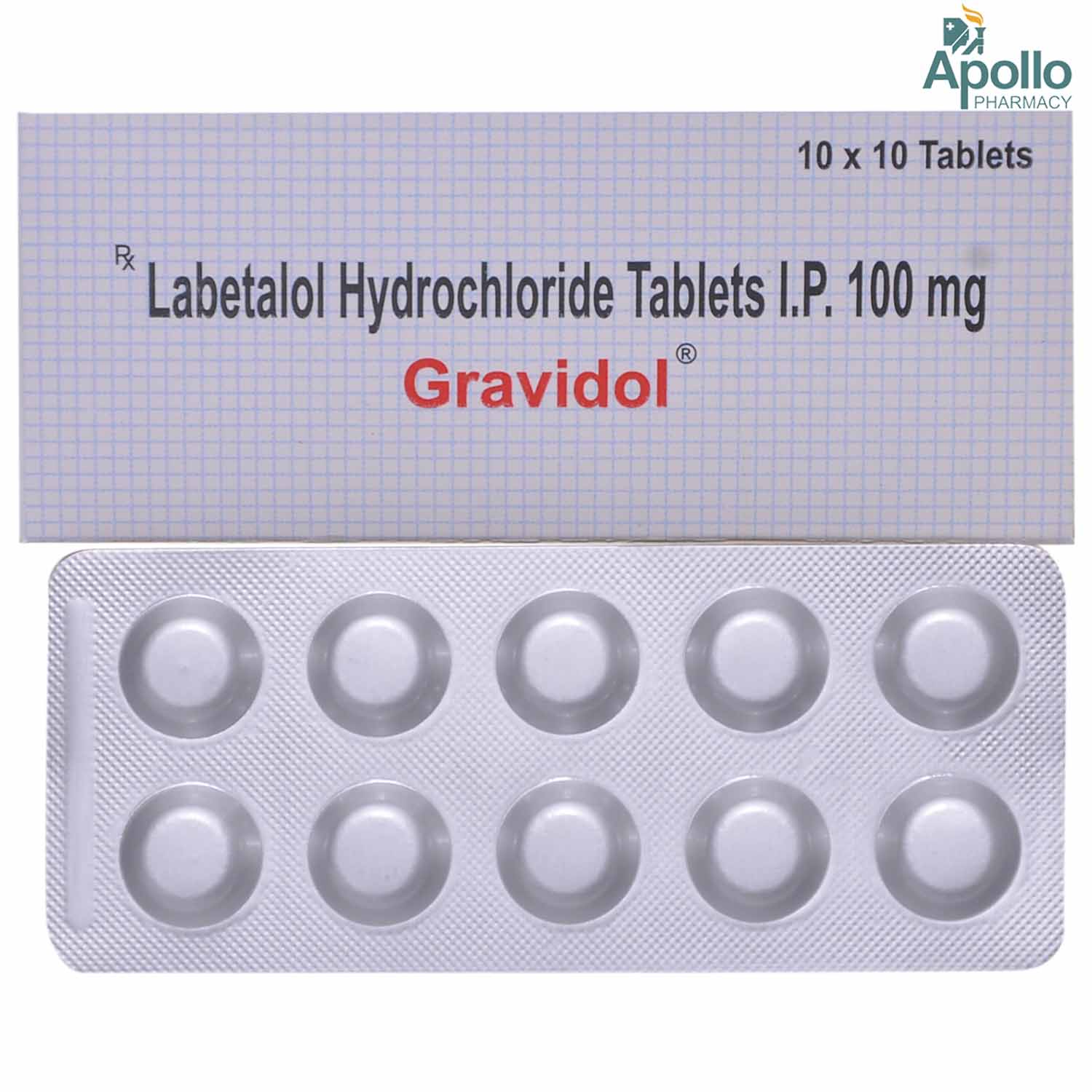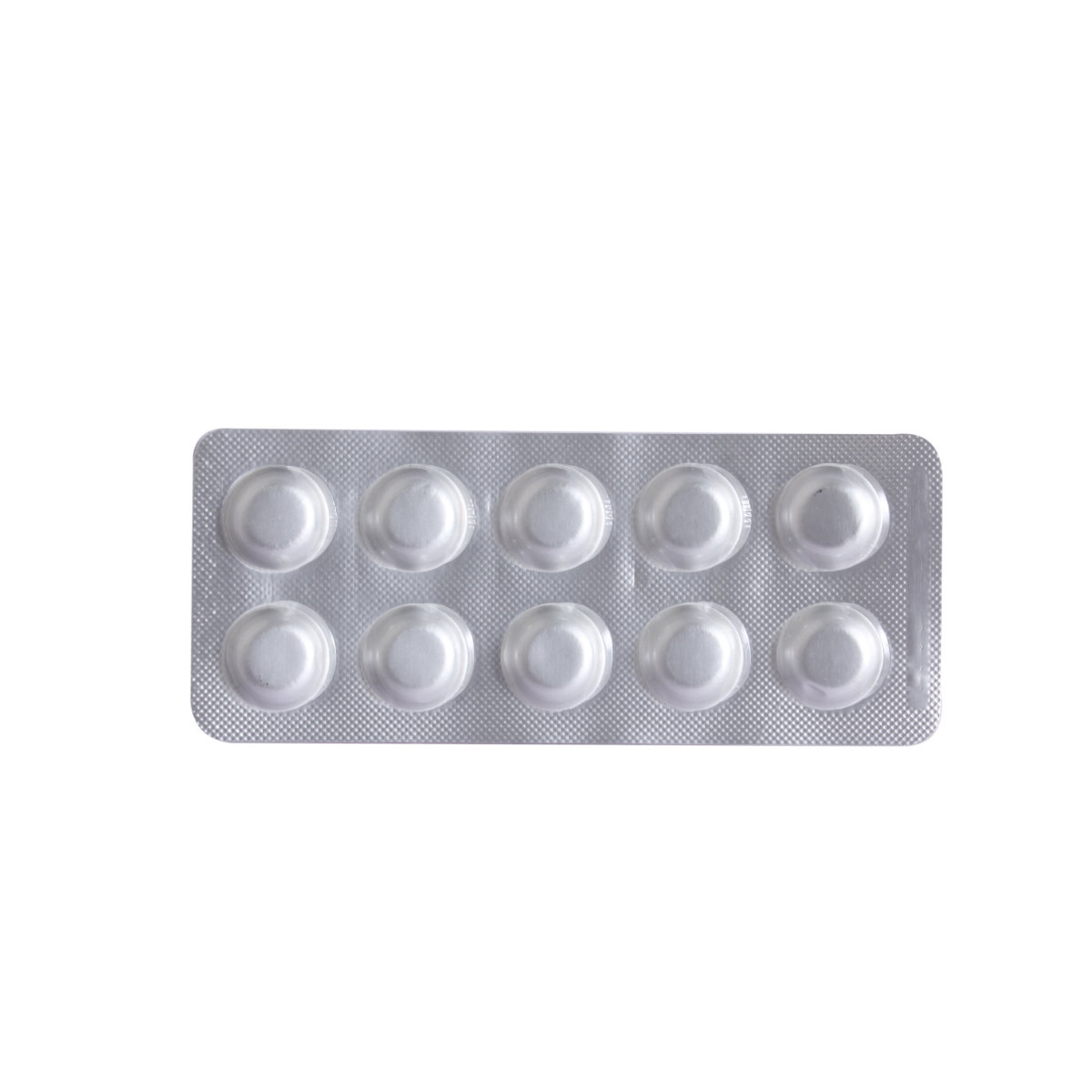Labetalol
About Labetalol
Labetalol belongs to the blood pressure-lowering medications called 'beta-blocker' used to treat hypertension (high blood pressure). Additionally, Labetalol is used to control high blood pressure in pregnancy and during anaesthesia. High blood pressure is a condition in which the blood exerts elevated pressure on blood vessel walls, leading to various cardiovascular complications like the risk of heart attack and stroke in the future.
Labetalol contains 'labetalol' that works by blocking the receptors in the cardiovascular system, this helps decrease the blood pressure in the blood vessels. Labetalol helps the heart to beat slower with less force. It also relaxes and widens the blood vessels, this makes it easier for the heart to pump blood to all parts of the body. Thereby, helps in lowering the raised blood pressure and reducing the overload of the heart.
You are advised to take Labetalol for as long as your doctor has prescribed it for you depending on your medical condition. In some cases, you may experience certain common side-effects such as dizziness, drowsiness, nausea, vomiting, swelling, and headache. Most of these side-effects do not require medical attention and will resolve gradually over time. However, you are advised to talk to your doctor if the side-effects persist or worsen.
Please do not stop taking Labetalol on your own as it may cause a sudden increase in blood pressure. Consult your doctor if you are pregnant or breastfeeding. Labetalol is not recommended for children as efficacy and safety have not been established. Avoid consuming alcohol as it might interfere with the working of Labetalol. Inform your doctor about all the medicines you are taking and your health condition to rule out any unpleasant side-effects.
Uses of Labetalol
Medicinal Benefits
Labetalol belongs to the anti-hypertensive medicines called beta-blocking agents used to treat hypertension (high blood pressure) and angina (chest pain). Labetalol is also used to control high blood pressure in pregnancy and during anaesthesia. Labetalol works by blocking the receptors in the cardiovascular system, this helps decrease the blood pressure in the blood vessels. Labetalol helps the heartbeat slower with less force and relaxes, and widens the blood vessels, this makes it easier for the heart to pump blood to all parts of the body. Thereby, helps in lowering the blood pressure to normal.
Directions for Use
Storage
Side Effects of Labetalol
- Dizziness
- Drowsiness
- Nausea
- Vomiting
- Swelling
- Headache
Drug Warnings
Do not take Labetalol if you are allergic to any of its contents, if you have heart problems, low blood pressure, extremely slow heart rate, prinzmetal angina, asthma or obstructive airway disease or adrenal gland tumour. Inform your doctor if you have reduced liver or kidney function, Raynaud's syndrome, intermittent claudication, diabetes, overactive thyroid, heart problems, metabolic acidosis, pheochromocytoma (tumour in the adrenal gland), ischaemic heart disease, lung problems or if you are due to have any surgery. Consult your doctor if you are pregnant or breastfeeding. Labetalol is not recommended for children as efficacy and safety have not been established. Rise slowly from lying/sitting position as Labetalol may cause dizziness (postural hypotension).
Drug Interactions
Drug-Drug Interaction: Labetalol may interact with a painkiller (aspirin, indomethacin, ibuprofen), diuretic (furosemide), anti-hypertensive (amlodipine, verapamil, clonidine), hormone (levothyroxine), cardiac glycoside (digoxin), anti-arrhythmic (amiodarone), anti-depressants (imipramine), anti-diabetic (metformin, glimepiride, acarbose, repaglinide, insulin), anti-migraine (ergotamine, dihydroergotamine), anti-Alzheimer (donepezil, galantamine, rivastigmine) anti-psychotic (chlorpromazine)
Drug-Food Interaction: No interactions found/established.
Drug-Disease Interaction: Inform your doctor if you have congestive heart failure (heart problems), hemodialysis, bradyarrhythmia, diabetes, ischemic heart disease, asthma/COPD, glaucoma, hyperlipidemia, hyperthyroidism, myasthenia gravis (muscle problems), psoriasis, Prinzmetal angina, liver diseases or kidney dysfunction.
Drug-Drug Interactions Checker List:
Safety Advice

Alcohol
unsafeYou are recommended to avoid alcohol consumption while taking Labetalol to avoid unpleasant side-effects. Alcohol intake might interfere with the working of Labetalol.

Pregnancy
safe if prescribedLabetalol belongs to pregnancy category C. Your doctor may prescribe Labetalol if the benefits outweigh the risks to treat high blood pressure during pregnancy when rapid control of blood pressure is necessary.

Breast Feeding
cautionSmall amounts of Labetalol may pass into breastmilk. Please consult your doctor. Your doctor will decide whether Labetalol can be given to breastfeeding mothers or not.

Driving
cautionLabetalol may cause dizziness, do not drive or operate heavy machinery if you feel dizzy.

Liver
cautionDose adjustment may be needed. Please consult your doctor if you have liver impairment/liver disease or any concerns regarding this.

Kidney
cautionDose adjustment may be needed. Please consult your doctor if you have kidney impairment/kidney disease or any concerns regarding this.

Children
unsafeLabetalol is not recommended for children, as efficacy and safety have not been established.
Habit Forming
Diet & Lifestyle Advise
- You are advised to consume low salt and low-fat diet.
- Regular exercise is also recommended.
- Eat a diet rich in whole grains, vegetables, and fruits.
- Avoid smoking and alcohol consumption.
- Maintain a healthy weight with proper diet and exercise.
- Managing stress with meditation, yoga, and massage.
Special Advise
- Regularly monitor blood pressure levels to prevent hypotension (low blood pressure).
- Labetalol might interfere with certain laboratory test results and possibly cause false results such as raised liver function tests, antinuclear antibody blood tests, urine tests and MIBG scintigraphy (test to detect tumours). Inform the person doing the tests that you are taking Labetalol.
- Inform your surgeon ahead of time that you are taking Labetalol if you have any surgery requiring general anaesthesia or cataract surgery.
Patients Concern
Disease/Condition Glossary
High blood pressure (hypertension): It is a condition in which the blood exerts increased pressure on the walls of blood vessels leading to hypertension. This condition can lead to hardened arteries (blood vessels), decreasing the blood and oxygen flow to the heart. Raised blood pressure can cause chest pain (angina) and heart attack (when the blood supply to the heart is blocked). Additionally, high blood pressure also causes brain damage (stroke) and kidney failure. Symptoms of high blood pressure include headache, dizziness, nose bleed, changes in vision, chest pain, weakness and dyspnoea (shortness of breath). However, most of the time, the signs and symptoms of hypertension are none.
FAQs
Labetalol works by blocking the receptors in the cardiovascular system; this helps in decreasing the blood pressure in the blood vessels. Labetalol helps the heart to beat slower with less force, relaxes, and widens the blood vessels, this makes it easier for the heart to pump blood to all parts of the body. Thereby, helps in lowering the blood pressure to normal.
Please do not stop taking Labetalol without consulting your doctor as it may lead to a rise in blood pressure. Continue taking Labetalol for as long as your doctor has prescribed it to you. Do not be reluctant to speak with your doctor if you experience any difficulty while taking Labetalol.
Postural hypotension could be a side-effect of Labetalol. Postural hypotension is a sudden lowering in blood pressure leading to dizziness on standing. If you experience this, do not try to stand up suddenly or start walking, instead lie down and get up slowly only when you feel better.
Labetalol is used to treat gestational hypertension (high blood pressure during pregnancy) when the blood pressure needs to be lowered rapidly.
Labetalol may cause erectile dysfunction (impotence), ejaculation problems and difficulty obtaining or maintaining an erection. Please consult your doctor if you have any concerns regarding these.
Inform your doctor if you have type-1 or type-2 diabetes mellitus. If you are diabetic, you should monitor your blood glucose levels regularly because Labetalol might mask the symptoms of hypoglycemia (low blood glucose levels).
Labetalol might affect pupils during cataract surgery and might mask the effects of sudden blood loss, so inform the surgeon ahead of time that you are taking Labetalol if you are due to have cataract surgery. This will help the doctor to manage the complications in advance, which could occur during the surgery.
Multivitamins and minerals may lower the effect of Labetalol when taken together. If your doctor has prescribed multivitamins and minerals, maintain a minimum gap of 2 hours between both.







